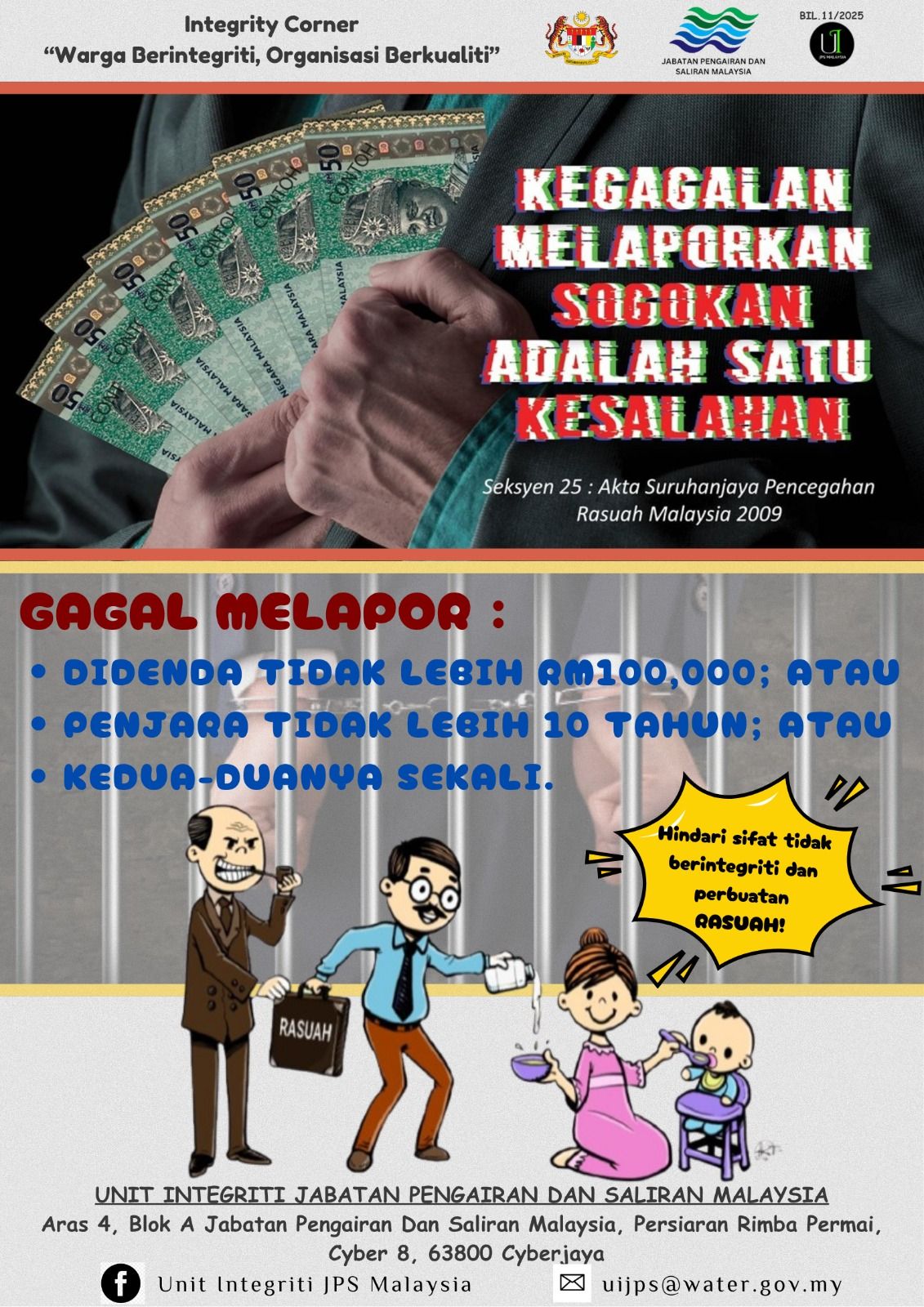- HOME
- ABOUT US
- DIVISION
- Management Services Division
- Corporate Division
- Urban Drainage and Flood Mitigation Division
- Agricultural Irrigation and Drainage Division
- River and Coastal Engineering Division
- Mechanical and Electrical Services Division
- Quantity Surveying And Contract Management Division
- Water Resource Management, Hydrology and Dam Division
- Federal Projects Division of Perak
- JPS STAFF
- PUBLIC
- SERVICES
- CONTACT US
Integrity Corner JPS Perak
The word 'integrity' in Malay is borrowed from the word 'integrity' in English, which has the generic meaning of 'the quality of being honest and having strong moral principles'. Meanwhile, the 1985 Dewan Bahasa dan Pustaka (DBP) bilingual dictionary defines integrity as honesty, sincerity, perfection, and wholeness. In other words, integrity encompasses all the noble values that should be present in every individual or organization.
In summary, integrity can be divided into three parts: individual integrity, public servant integrity, and organizational integrity.
Individual integrity
Individual integrity refers to a set of superior qualities that exist among individuals, and these qualities are based on the principle of adhering firmly to honesty and high moral practices. This means that integrity is the alignment between actions and moral, ethical, and legal principles, as well as the alignment between self-interest and the public interest.
Integrity of Public Servants
The integrity of Public Servants executes the trust and authority entrusted to them in accordance with the public interest. The office holder must not abuse their power for personal, family, relatives, or kin's interests.
Organizational Integrity
Organizational integrity is reflected in the formulation and implementation of the code of ethics, customer charter, or work systems and processes, as well as adherence to best practices. The code of ethics is emphasized, reiterated, and internalized by the members of the organization until it becomes a habit and eventually transforms into the organization's culture (corporate culture).
Official Social Media Links
Visitor Statistics
- Today566
- Yesterday682
- This Week5120
- This Month6444
- Total62199
© 2025 Department of Irrigation and Drainage, State Of Perak

 English
English  Bahasa Melayu
Bahasa Melayu 






